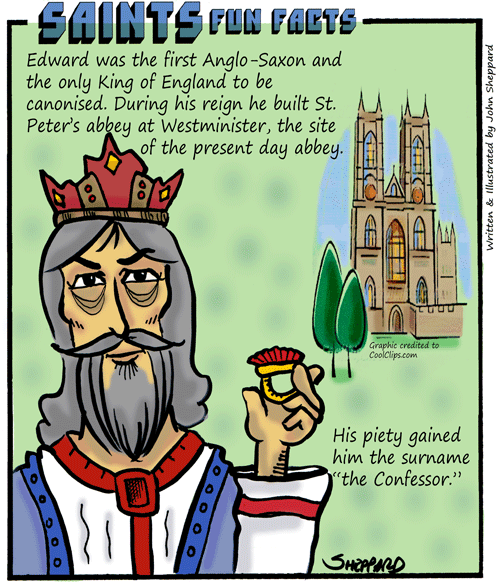 Dear readers, Catholic Online was de-platformed by Shopify for our pro-life beliefs. They shut down our Catholic Online, Catholic Online School, Prayer Candles, and Catholic Online Learning Resources essential faith tools serving over 1.4 million students and millions of families worldwide. Our founders, now in their 70's, just gave their entire life savings to protect this mission. But fewer than 2% of readers donate. If everyone gave just $5, the cost of a coffee, we could rebuild stronger and keep Catholic education free for all. Stand with us in faith. Thank you. Help Now >
Dear readers, Catholic Online was de-platformed by Shopify for our pro-life beliefs. They shut down our Catholic Online, Catholic Online School, Prayer Candles, and Catholic Online Learning Resources essential faith tools serving over 1.4 million students and millions of families worldwide. Our founders, now in their 70's, just gave their entire life savings to protect this mission. But fewer than 2% of readers donate. If everyone gave just $5, the cost of a coffee, we could rebuild stronger and keep Catholic education free for all. Stand with us in faith. Thank you. Help Now >
St. Edward the Confessor
Facts
Author and Publisher - Catholic Online
Printable PDF of St. Edward the Confessor
Shop St. Edward the Confessor

Edward the Confessor was the son of King Ethelred III and his Norman wife, Emma, daughter of Duke Richard I of Normandy. He was born at Islip, England, and sent to Normandy with his mother in the year 1013 when the Danes under Sweyn and his son Canute invaded England. Canute remained in England and the year after Ethelred's death in 1016, married Emma, who had returned to England, and became King of England. Edward remained in Normandy, was brought up a Norman, and in 1042, on the death of his half-brother, Hardicanute, son of Canute and Emma, and largely through the support of the powerful Earl Godwin, he was acclaimed king of England. In 1044, he married Godwin's daughter Edith. His reign was a peaceful one characterized by his good rule and remission of odious taxes, but also by the struggle, partly caused by his natural inclination to favor the Normans, between Godwin and his Saxon supporters and the Norman barons, including Robert of Jumieges, whom Edward had brought with him when he returned to England and whom he named Archbishop of Canterbury in 1051. In the same year, Edward banished Godwin, who took refuge in Flanders but returned the following year with a fleet ready to lead a rebellion. Armed revolt was avoided when the two men met and settled their differences; among them was the Archbishop of Canterbury, which was resolved when Edward replaced Robert with Stigand, and Robert returned to Normandy. Edward's difficulties continued after Godwin's death in 1053 with Godwin's two sons: Harold who had his eye on the throne since Edward was childless, and Tostig, Earl of Northumbria. Tostig was driven from Northumbria by a revolt in 1065 and banished to Europe by Edward, who named Harold his successor. After this Edward became more interested in religious affairs and built St. Peter's Abbey at Westminster, the site of the present Abbey, where he is buried. His piety gained him the surname "the Confessor". He died in London on January 5, and he was canonized in 1161 by Pope Alexander III. His feast day is October 13.
More Saints
 New Saints canonized by Pope Francis
New Saints canonized by Pope FrancisFREE Saint Classes Printable Saint PDF's Light a Virtual Saint Candle
Join the Movement
When you sign up below, you don't just join an email list - you're joining an entire movement for Free world class Catholic education.
An Urgent Message from Sister Sara – Please Watch
- Advent / Christmas
- 7 Morning Prayers
- Mysteries of the Rosary
- Litany of the Bl. Virgin Mary
- Popular Saints
- Popular Prayers
- Female Saints
- Saint Feast Days by Month
- Stations of the Cross
- St. Francis of Assisi
- St. Michael the Archangel
- The Apostles' Creed
- Unfailing Prayer to St. Anthony
- Pray the Rosary
![]()
Copyright 2026 Catholic Online. All materials contained on this site, whether written, audible or visual are the exclusive property of Catholic Online and are protected under U.S. and International copyright laws, © Copyright 2026 Catholic Online. Any unauthorized use, without prior written consent of Catholic Online is strictly forbidden and prohibited.
Catholic Online is a Project of Your Catholic Voice Foundation, a Not-for-Profit Corporation. Your Catholic Voice Foundation has been granted a recognition of tax exemption under Section 501(c)(3) of the Internal Revenue Code. Federal Tax Identification Number: 81-0596847. Your gift is tax-deductible as allowed by law.







